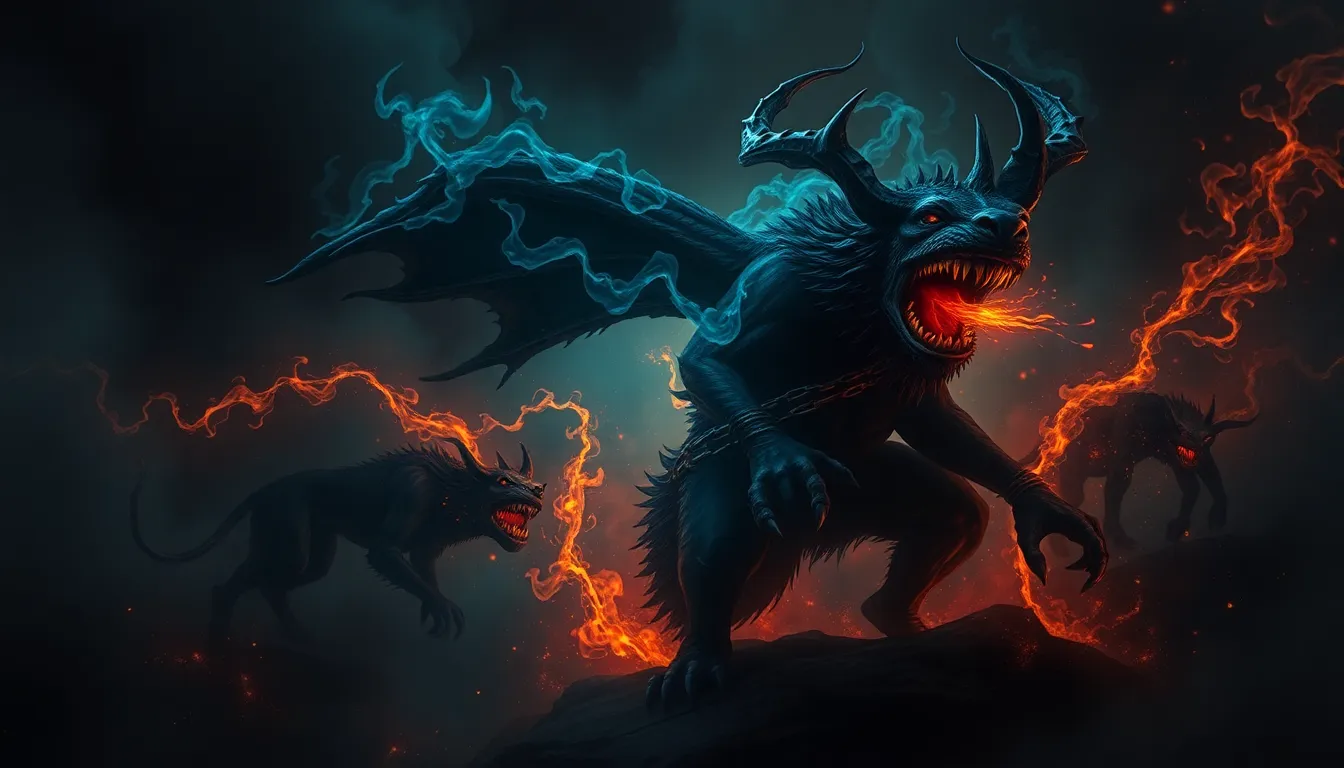Finnish Mythology: The Connection Between Humans and the Ancestors
I. Introduction: The Importance of Ancestors in Finnish Culture
In Finnish mythology and culture, the connection between the living and the departed ancestors is a vital and enduring one. Finnish mythology is a rich tapestry of beliefs, stories, and practices that have shaped the Finnish people's perception of the world for centuries. Among the most prominent themes in Finnish mythology is the profound reverence for and connection with one's ancestors. This connection is expressed through a variety of beliefs and practices, including ancestor worship, shamanism, and the sauna.
II. The Hiisi: Guardians of the Dead and the Sacred
In Finnish mythology, the Hiisi are enigmatic forest spirits who are closely associated with the dead and the sacred. They are often depicted as being guardians of the forest, protectors of nature, and guides for the souls of the deceased. The Hiisi are said to reside in sacred groves or forests, known as hiidenkivi, which are believed to possess supernatural powers and are considered to be the entrances to the otherworld. Offerings are often made to the Hiisi, in the form of food, drink, or other items, in order to gain their favor and protection.
III. The Kalevala: Epic Poetry and Ancestor Worship
The Kalevala is the national epic of Finland, and it contains a vast collection of traditional Finnish myths and legends. The Kalevala tells the story of the creation of the world, the adventures of the hero Väinämöinen, and the struggles of the Finnish people against their enemies. Throughout the Kalevala, the importance of ancestors is a recurring theme. The heroes of the Kalevala often seek the wisdom and guidance of their ancestors, and the dead are often invoked to aid the living in times of need.
IV. The Ancestor’s Soul and the Journey to the Otherworld
In Finnish mythology, the soul of a deceased person is believed to travel to the otherworld, known as Tuonela. Tuonela is a dark and mysterious place, ruled by the goddess Tuoni. The journey to Tuonela is often depicted as being treacherous and dangerous, and the soul must navigate a series of obstacles and challenges in order to reach its destination. Along the way, the soul may encounter otherworldly beings, such as the Hiisi or the ferryman of the dead, who help or hinder its progress.
V. Shamanism and Communicating with the Ancestors
Shamanism is a spiritual practice that involves communication with the spirits of the dead. In Finnish mythology, shamans are believed to possess the ability to travel to the otherworld and to communicate with the ancestors. They are often called upon to help the living heal from illness, find lost objects, or resolve conflicts. Shamans are also believed to be able to guide the souls of the dead to Tuonela and to help them make the transition to the otherworld.
VI. The Sauna: A Sacred Space for Rituals
The sauna, a traditional Finnish bathhouse, holds a special significance in Finnish mythology and culture. The sauna is believed to be a sacred space where the living can connect with the ancestors. It is often used for rituals and ceremonies, such as childbirth, healing, and mourning. The heat of the sauna is said to purify the body and the soul, and to help the living to release their emotions and connect with their inner selves. It is also believed that the ancestors can visit the sauna and participate in the rituals, offering their wisdom and guidance to the living.
VII. Ancestor Worship in Modern Finland
Ancestor worship continues to play a role in modern Finnish culture. Many Finns still visit the graves of their loved ones on special occasions, such as All Saints' Day, to pay their respects and to share stories about their ancestors. Some families also have special traditions for honoring their ancestors, such as lighting candles or making offerings of food and drink. Ancestor worship is a way for Finns to stay connected to their past and to honor the legacy of their ancestors.
VIII. The Role of Ancestors in Traditional Beliefs
In traditional Finnish beliefs, ancestors are believed to play an active role in the lives of the living. They are often invoked for protection, guidance, and healing. Ancestors are also believed to be able to influence the weather, the crops, and the fortunes of the living. In some cases, ancestors may even be worshipped as gods or goddesses.
IX. The Legacy of Ancestor Worship
Ancestor worship has left a lasting legacy on Finnish culture. It is reflected in the Finnish language, which contains many words related to ancestors and the afterlife. It is also reflected in Finnish art, literature, and music. The Kalevala, for example, is filled with stories about the relationship between the living and the dead.
X. Conclusion: The Enduring Connection Between Humans and the Ancestors
The connection between humans and the ancestors is a vital and enduring one in Finnish mythology and culture. Ancestors are revered as guardians, protectors, and guides. They are invoked for protection, guidance, and healing. They are also believed to play an active role in the lives of the living. Ancestor worship is a way for Finns to stay connected to their past and to honor the legacy of their ancestors.
FAQ
What is the importance of ancestors in Finnish culture?
Ancestors are revered in Finnish culture as guardians, protectors, and guides. They are invoked for protection, guidance, and healing. They are also believed to play an active role in the lives of the living.How do Finns connect with their ancestors?
Finns connect with their ancestors through a variety of practices, including ancestor worship, shamanism, and the sauna.What is the role of the Hiisi in Finnish mythology?
The Hiisi are enigmatic forest spirits who are closely associated with the dead and the sacred. They are often depicted as being guardians of the forest, protectors of nature, and guides for the souls of the deceased.
What is the significance of the sauna in Finnish culture?
The sauna is a traditional Finnish bathhouse that holds a special significance in Finnish mythology and culture. It is believed to be a sacred space where the living can connect with the ancestors. It is often used for rituals and ceremonies, such as childbirth, healing, and mourning.How does ancestor worship continue to play a role in modern Finnish culture?
Ancestor worship continues to play a role in modern Finnish culture through practices such as visiting the graves of loved ones on special occasions, sharing stories about ancestors, and observing special traditions for honoring ancestors.



